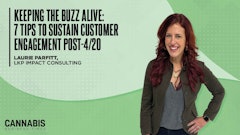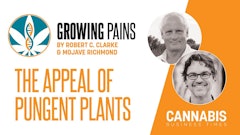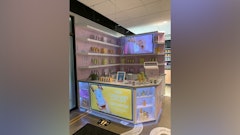
In January 2021, a major cannabis business acquisition in California resulted in the launch of The Parent Company—a vertically integrated suite of brands that includes Caliva and Left Coast Ventures, as well as Jay-Z’s MONOGRAM and Roc Nation. Through M&A and organic activity in the past year, The Parent Company is in 80% of legal California jurisdictions as of Q4.
Cannabis Business Times spoke with Chief Development Officer Steve Allan to learn more about The Parent Company’s first year in business.
Eric Sandy: The Parent Company just acquired Coastal Dispensaries. What does that mean for the business now?
Steve Allan: We’re thrilled about the opportunity to join forces with the Coastal folks. We’ve been looking at opportunities to expand our direct-to-consumer footprint. We really believe, in the nascency of the cannabis days, that direct-to-consumer interaction is incredibly important. When you look very specifically at California, we really have an access problem out here for California consumers.
Coastal was so strategically well positioned in high-traffic locations. A lot of cannabis dispensaries, unfortunately, have been positioned in some less desirable locations. I think that just happened as local administrations were getting more comfortable with cannabis, and you’re now seeing newer [administrations] that are understanding that you really want to put these in what we call “Class-A” real estate. That’s something Coastal was focused on, and it excited us when we went in and looked at their storefronts [and] locations, and mapped out the existing dispensaries against future licensing.
ES: Vertical integration is almost a de facto requirement in California. How does that help in brand development?
SA: There’s still a vast majority of people who are not cannabis users or who fall into the canna-curious bucket but not the canna-educated bucket. A lot of the ways consumers are receiving education are through conversations with budtenders or wellness consultants within dispensaries or retail outlets. The ability to provide meaningful, transparent, accurate information to the consumer to help them make an informed decision is important because you really have limitations on marketing. You even have constraints on where you can stick billboards.
The reality is if you don’t have that retail or direct consumer footprint to provide that on an omni-channel, statewide basis, it may actually be difficult for your consumer or potential consumer to access your products. Now, 10 years down the road, are we going to be having these same types of issues? No, because the marketing messaging and education components will have matured. We’ll see a much more reliable and typical CPG environment melding together with a retail environment.
ES: Earlier this year, MONOGRAM launched an awareness campaign around some of the legal and historical context of the plant and this industry. Can you elaborate on the role of a campaign like that?
SA: We are battling a 50-year war on drugs. “Egg-in-a-frying pan,” “Just say no,” some of these images are indelibly marked in people’s brains. There’s a lot of misinformation and ignorance around what that was, and erasing that isn’t something you can just do overnight.
Being able to take cultural icons such as Jay-Z and the talent within Roc Nation to help with that education will cause people to ask questions like, “Should I be more curious about this?” Or, “How can I go learn more about this?” We look at it as part of the role and responsibility and opportunity that exists for The Parent Company and our partners.
























